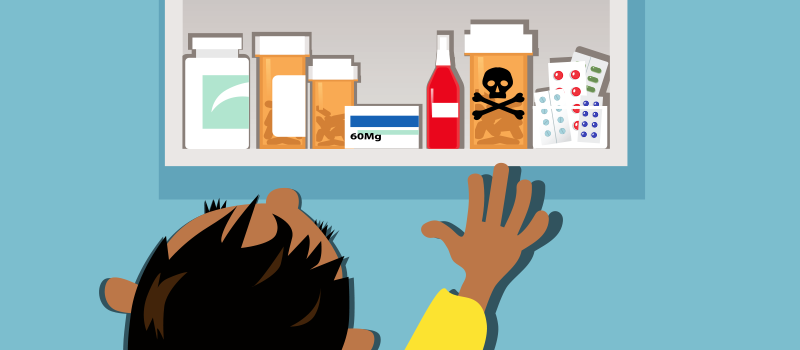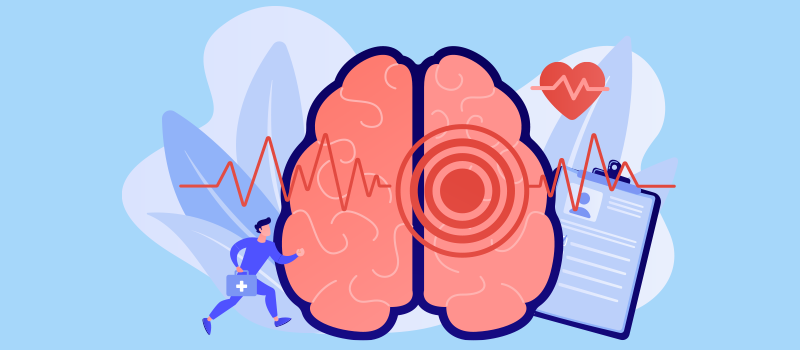What’s the Buzz
The Bee Healthy Blog
Metoprolol Side Effects

Metoprolol is a prescription drug that belongs to a group called beta blockers. Metoprolol works to lower blood pressure and heart rate; it is used to treat high blood pressure (hypertension) and angina (chest pain). Metoprolol works by widening the blood vessels and slowing the heart rate. Besides the immediate-release and extended-release form of oral tablets, metoprolol is also available as an injectable solution. Injectable metoprolol is used to lower the risk of death during a heart attack. In addition, heart failure patients take metoprolol to reduce the risk of death and hospitalization.
Please continue reading to learn about the side effects of metoprolol and other important information about this commonly prescribed medication.
Is metoprolol a high-risk med?
Metoprolol oral tablets are safe and effective when used as prescribed. Like most medications, taking metoprolol can be associated with some risks. Even though metoprolol can cause adverse effects that are fatal, this is not considered a high-risk medication, such as insulin, anticoagulants (blood thinner), opiates, and chemotherapy agents, just to name a few.
What are the precautions of metoprolol therapy?
To make sure metoprolol is safe for you, inform your doctor if the following applies to you:
- Having severe heart failure or a history of cardiac disorders such as heart block or sinus sick syndrome;
- Having a history of blood circulation problems;
- Being allergic to metoprolol or other beta blockers
Some of the risks of taking metoprolol tartrate (Lopressor) and metoprolol succinate (Toprol XL) are listed below.
DRUG INTERACTIONS
Taking metoprolol with certain other medications can change the way it works. A particular drug combination can also lead to serious adverse effects. Give your healthcare provider a complete list of your medications, including prescription drugs, over-the-counter medications, dietary supplements, and herbal products, to avoid potentially dangerous drug interactions. There are many medications that can interact with metoprolol. Below are some of the notable drugs or drug classes that can affect how metoprolol works:
- Certain medications for blood pressure, heart disease, and irregular heart rhythm — When combined with metoprolol, these medications can further lower blood pressure and heart rate.
- Antidepressants — Metoprolol is metabolized by certain liver enzymes that are blocked by some antidepressants. This interaction leads to an increase in blood levels of metoprolol, causing very low blood pressure and heart rate. The two main antidepressants to watch out for are paroxetine (Paxil) and fluoxetine (Prozac).
- Ergot medications — Examples of ergot medicines include ergotamine, methylergonovine, and ergonovine. This drug interaction can enhance the vasoconstrictive properties of ergot medicines.
- Monoamine oxidase inhibitors (MAOIs) — Combining metoprolol with an MAOI can lower blood pressure and heart rate. Isocarboxazid (Marplan), selegiline (Emsam), and tranylcypromine (Parmate) are the MAOIs that are approved to treat depression by the U.S. Food and Drug Administration.
- Alcohol — Taking metoprolol with alcohol can worsen dizziness and lightheadedness.
- Epinephrine — Metoprolol can reduce the effects of epinephrine.
ABRUPT CESSATION OF METOPROLOL
Suddenly stopping metoprolol can cause high blood pressure and reduced blood flow to the heart, increasing your risk of chest pain and heart attack. Your doctor will tell you how to lower your dose gradually over the period of 1 to 2 weeks before completely stopping metoprolol treatment. Let your doctor know immediately if you develop chest pain.
WORSENING HEART FAILURE
Metoprolol can cause worsening heart failure symptoms such as shortness of breath, swelling in the legs, and unusual weight gain. Your doctor may tell you not to take metoprolol if you have severe heart failure. Tell your doctor if you develop sudden weight gain, swelling, or breathing difficulties while on this medicine. They may adjust the dose to lower these side effects.
MASKING OF SYMPTOMS OF OTHER CONDITIONS
Taking metoprolol can hide the symptoms of low blood sugar in people with diabetes. It can also mask the signs of high thyroid levels, like a racing heartbeat in people with hyperthyroidism. Talk to your doctor about how often you should monitor your blood sugar before starting metoprolol. Don't stop taking metoprolol suddenly without your doctor’s approval to prevent thyroid problems.
INCREASED RISK DURING SURGERY
Metoprolol can increase the risk of complications during major surgery done using anesthesia. Tell your surgeon you are on metoprolol before any surgery so that they can monitor your heart during the procedure.
TROUBLE BREATHING
Metoprolol can make it harder to breathe if you have asthma or chronic obstructive pulmonary disease (COPD). Tell your doctor if you have these conditions. You should take metoprolol under the careful supervision of a healthcare professional if this is the case.
RISK IN PEOPLE WITH PHEOCHROMOCYTOMA
Metoprolol can raise blood pressure instead of lowering it in people with a hormone-producing tumor of the adrenal glands called pheochromocytoma. Your healthcare provider may prescribe another medication, such as an alpha blocker, to treat high blood pressure first if this is the case.
SERIOUS ALLERGIC REACTIONS
A small number of people can develop a severe allergic reaction after taking metoprolol. Tell your doctor if you have ever had an allergic reaction to metoprolol, other beta blockers, or any other drugs. Get immediate medical help if you develop skin rash, hives, itching, swelling of the face, lips, mouth, or throat, or difficulty breathing or swallowing.
What is the most common side effect of metoprolol?
The most common side effects of metoprolol are unusual tiredness and dizziness. This medication can also cause low blood pressure due to an over-correction of high blood pressure. Your doctor will tell you how often to check your blood pressure at home. If metoprolol is found to lower blood pressure more than necessary, your doctor will adjust your dose.
Other side effects include depression (feeling of sadness), dry mouth, stomach pain, nausea, vomiting, gas, bloating, constipation, heartburn, rash, itching, runny nose, and cold feeling in the hands and feet.
Less common side effects of metoprolol include decreased sexual ability (loss of interest in sexual intercourse, difficulty getting or maintaining an erection), trouble sleeping, and trouble concentrating.
More serious side effects of metoprolol are listed below. Call your doctor immediately or get emergency medical help if you develop side effects such as:
- Shortness of breath or wheezing, swelling, unusual, rapid weight gain
- Very slow heartbeat
- Fainting or severe lightheadedness
In case of an overdose of metoprolol, call the poison control center at 1-800-222-1222 and seek emergency medical care.
What should I avoid while taking metoprolol?
Metoprolol can cause severe dizziness and drowsiness. Do not drive a motor vehicle, operate heavy machinery, climb ladders, or do any hazardous activity until you know how this medication affects you. This is especially true when you first start the medication and after dose adjustments as your body adjusts to the medicine. Remember, these side effects can be made worse if you drink alcohol while taking metoprolol.
Is it better to take metoprolol at night or morning?
Your doctor may ask you to take metoprolol before bedtime because it can cause side effects such as drowsiness or dizziness. However, if you do not have these side effects, you can take your metoprolol dose in the morning or at night. If you have been advised to take metoprolol more than once a day, your doctor will tell you how to space out your doses evenly. Try to take your dose(s) around the same time every day.
If you miss a dose of metoprolol, take it as soon as you remember. However, if it is almost time for your next dose, skip the missed dose and take the next dose according to your regular dosing schedule.
How long can you stay on metoprolol?
Metoprolol is generally safe for long-term use. You may need to take this medicine for life to decrease blood pressure or treat chest pain. Keep in mind that stopping metoprolol suddenly can increase your risk of heart problems. If you are bothered by the side effects of metoprolol, tell your doctor. They might reduce your dose or switch you to a different medication to treat your condition.
References:
- https://www.ncbi.nlm.nih.gov/books/NBK532923/
- https://medlineplus.gov/druginfo/meds/a682864.html
- https://www.accessdata.fda.gov/drugsatfda_docs/label/2008/017963s062,018704s021lbl.pdf
- https://www.accessdata.fda.gov/drugsatfda_docs/label/2006/019962s032lbl.pdf
- https://www.mayoclinic.org/drugs-supplements/metoprolol-oral-route/side-effects/drg-20071141












SOCIAL